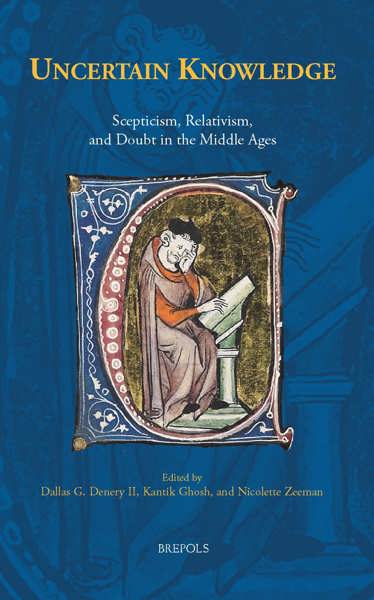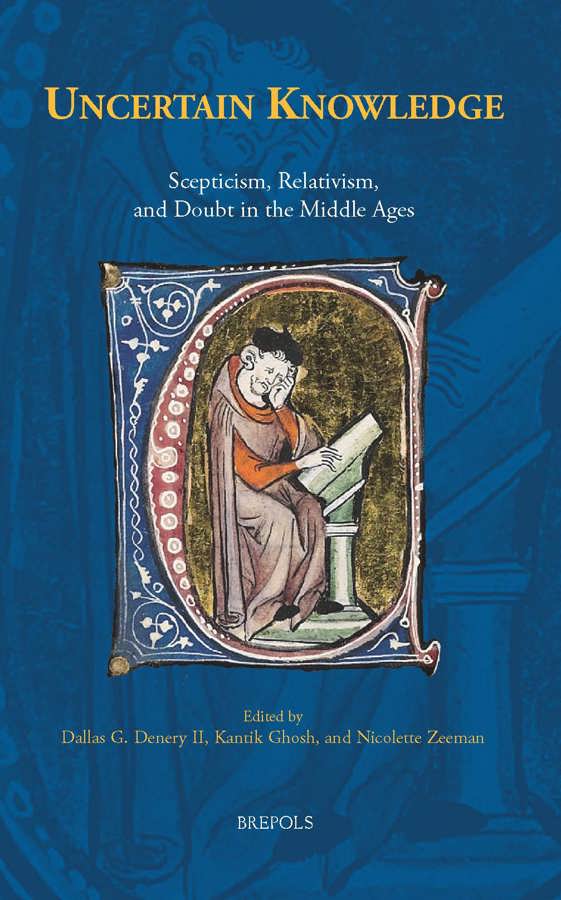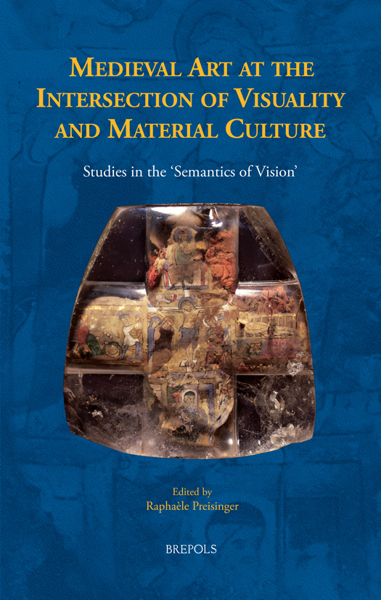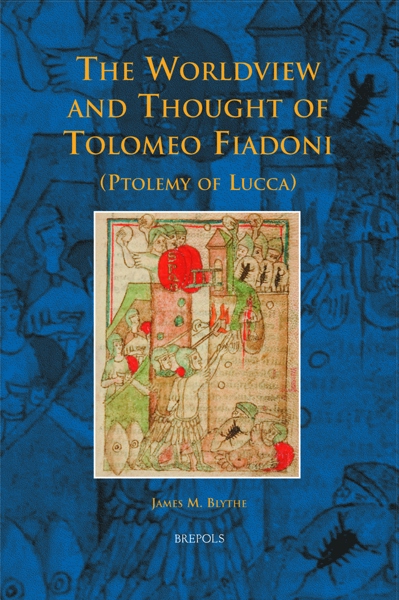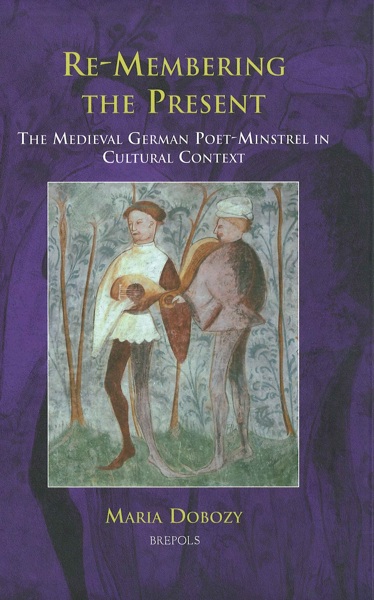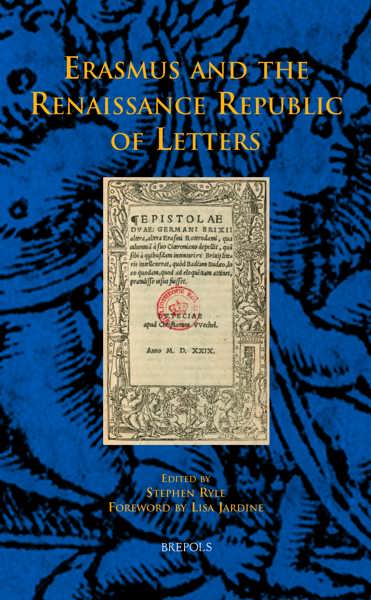
Uncertain Knowledge
Scepticism, Relativism, and Doubt in the Middle Ages
Dallas G. Denery II, Kantik Ghosh, Nicolette Zeeman (eds)
- Pages: viii + 345 p.
- Size:156 x 234 mm
- Illustrations:10 b/w
- Language(s):English
- Publication Year:2014
- € 110,00 EXCL. VAT RETAIL PRICE
- ISBN: 978-2-503-54776-3
- Hardback
- Available
- € 110,00 EXCL. VAT RETAIL PRICE
- ISBN: 978-2-503-54828-9
- E-book
- Available
This book undertakes an interdisciplinary investigation of ideas of uncertainty, relativism, and scepticism in the Middle Ages.
"Uncertain Knowledge sheds new light on the complexity of medieval philosophical engagement, both within the academy and without, and succeeds admirably in combating the cliché of the Middle Ages as an Age of Faith. It should be of great interest to scholars of medieval literature, philosophy, and the history of ideas." (Lola Sharon Davidson, in: Parergon, 32.1, 2015, p. 232-233)
"As the editors of this important volume of essays note, doubt was 'everywhere and nowhere' (p. 3) in the Middle Ages. The explorations of that simultaneous presence and absence by thirteen leading medievalists from a variety of disciplines are insightful, provocative and – unusually for many collected papers – they add up to more than the sum of their parts. (...) The present volume makes a very positive intervention in the field (...)." (Ian Forrest, in: The Mediaeval Journal, 5.1, 2015, p. 147-153)
"These are important contributions to intellectual history, collectively reminding early modernists that the claims of Renaissance humanists and others of having moved far beyond a simplistic medieval mind-set were just that — claims, rather than objective reality." (John H. Arnold, in: Renaissance Quarterly, 68.2, 2015, p. 665-667)
"There is much more to be said about this impressive collection of thought but word constraints will not allow me such indulgence. As in all such collections, there are a couple of weaker essays, one or two that, when compared with the overall strength of the volume, appear somewhat opaque, leaving this reader a little unsatisfied and searching for the central point of the argument. This, however, is a very minor criticism of a thoughtful and well-edited body of work." (Zita Eva Roht, in: Sixteenth Century Journal XLVI/3, 2015, p. 702-704)
«The present volume (…) will assist historians of medieval thought in rethinking the premodern understanding of contingency and uncertain knowledge (…) The volume will be of use to advanced undergraduates, graduate students, and scholars of medieval intellectual history.» (John T. Slotemaker, in Religious Studies Review, 41.2, 2015, p. 85)
What are the forms in which later medieval thinkers articulate epistemological scepticism, relativism, and doubt? Is it possible to voice different forms of uncertainty in different institutional contexts and languages? Bringing together specialists in philosophy, theology, history, and literature, this book undertakes an interdisciplinary investigation of some of the ways in which the problem of knowledge was explored in the Middle Ages. This is a topic of central intellectual importance and has large cultural consequences. The Middle Ages are often still treated by non-medievalists as a time of naive epistemological self-confidence, and we hope that ultimately this revisionist project will have impact beyond medieval studies, illustrating the extent to which this was a period in which many thinkers were intrigued by, and comfortable with, uncertainty.
Introduction: The Varieties of Uncertainty — NICOLETTE ZEEMAN , KANTIK GHOSH , and DALLAS G. DENERY II
Uncertainty and Deception in the Medieval and Early Modern Court — DALLAS G. DENERY II
New Standards for Certainty: Early Receptions of Aristotle’s Posterior Analytics — EILEEN C. SWEENEY
Can We Trust our Senses? Fourteenth-Century Debates on Sensory Illusions — DOMINIK PERLER
How Is it Possible to Believe Falsely? John Buridan, the Vetula, and the Psychology of Error — CHRISTOPHE GRELLARD
Living with Uncertainty: Reactions to Aristotle’s Rhetoric in the Later Middle Ages — RITA COPELAND
Uncertainty in the Study of the Bible — LESLEY SMITH
On Recognizing the Limits of Our Understanding: Medieval Debates about Merlin and Marvels — KAREN SULLIVAN
The Merits of Not Knowing: The Paradox of ‘Espoir certain’ in Late Medieval French Narrative Poetry — HELEN SWIFT
Philosophy in Parts: Jean de Meun, Chaucer, and Lydgate — NICOLETTE ZEEMAN
Vernacular Opinions — MISHTOONI BOSE
Logic, Scepticism, and ‘Heresy’ In Early Fifteenth-Century Europe: Oxford, Vienna, Constance — KANTIK GHOSH
Laughter and Deception: Holcot and Chaucer Remain Cheerful — HESTER GOODENOUGH GELBER
Medieval Bêtise: Internal Senses and Second Skins in Richard de Fournival’s Bestiaire d’amours — SARAH KAY
General Index
Index nominum
